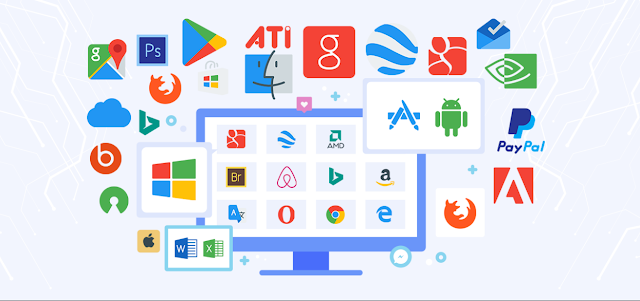The software development industry is one of the fastest growing industries today and software developers are in high demand all over the planet. At the same time, the future of work is a hot topic; On the one hand, there is hope that the future of work means more opportunities for anyone, anywhere, to work fewer days and hours, have access to better tools, and so on. On the other hand, many worrisome questions have been raised, such as whether robots will replace humans, whether AI (artificial intelligence) will jettison ethics and morals, whether we will be more connected and yet less connected to each other at work and at home, and so on.
 |
Profiles more generalists than specialists:
As we move into a data-driven world, in which we analyze characteristics even in real time, to find out how much value they bring to customers, to learn from it and improve from the results, it is more important than ever that we have more people on our boat, don't be afraid to roll up your sleeves and use any new or unfamiliar technology to get things done. This does not mean that there will no longer be a need for specialist profiles. There always will be . However, there will be a much greater need for generalist profiles in the software development industry. We have already started to see this scenario with the increase in demand for developers full stack in recent years. In short, being a standard plug for all switches will become very valuable for your future work.
Collaboration on qualification:
In the future, the ability to collaborate for software development professionals will be even more important than it is now. Gone are the days when a candidate was hired because of their impressive academic qualifications.
Here's a bit of a personal story. I was born to academic parents, and growing up, earning academic degrees has always been at the top of my goals in life. As a result, I found academic qualifications to be one of the important things to have on the CV. It was not until a decade after my career that I understood that what is really important is to have collaborative people, with team players and not with those who simply excel in academics. They are not always mutually inclusive. The reason collaborative skill is a necessity, rather than a good idea, is because no matter how well educated you are, if you are not able to articulate and argue your ideas well and you are unable to gain acceptance of Otherwise , you will not be able to progress as fast as the other person who is. Speed will be the key to unlocking innovation in future work.
Global mindset:
Keeping the future of our career as software developers in mind is twofold .
First in terms of the product you are building for your clients. A good question is, will the product I'm developing work for different regions, different languages, different devices, and different internet connection speeds?
The second part of having a global mindset is towards coworkers and those you work with. With flexibility becoming the number one need for the next generation of workers , it's important to note that many of your coworkers will likely be working from multiple locations, sometimes remotely . There is even research that claims that by 2020, 50% of workers will be remote. This means having a global mindset, being able to work well with people you may never have met in person, with people from different backgrounds, and openness to diversity of thoughts will become essential. The future of work will be global, remote and border-less.
NON-linear career progression:
In the past, career progression was largely linear, whereby a person worked their way up the traditional career ladder, moving from a supporting role, to a middle role, to a senior role, before becoming a manager and then possibly , retire as a senior executive.
However, career progression will not be the same in the future. It will be a lattice career progression, where you will move throughout your career, either horizontally, diagonally or vertically, in both directions. This form of professional development is already common in our generation, as more and more workplaces have a flatter organizational structure and an agile way of working . What this means is that you will need to be flexible, adaptive, and always be learning and growing in your career in order to thrive in the job of the future.
Creative entrepreneurs instead of task implementer:
In the past, if you worked hard and completed your tasks on time, with little or no supervision, you were considered a high-performing worker. This is no longer the case and will become increasingly apparent as time goes by. Entrepreneurs who are willing to take risks and come up with creative solutions on their own will be highly valued compared to task implementer who make no mistakes, because they simply execute someone else's solution.
Having an entrepreneurial drive will become the norm rather than the novelty, and organizations will expect and encourage these characteristics in their employees. Why? Because robots can perform repetitive tasks with greater precision and speed than humans, but they will never be as innovative as humans.
Prepare for the future of work:
In fact, the work of the future is not that far away. We are already seeing glimpses of what awaits us in this industry. So go ahead and get ready for the biggest change in the software development industry . It will be different and I am sure that it is the change that will bring out the best in you, if you are willing to open up to the different possibilities that will appear and to give the best of yourself.




0 Comments